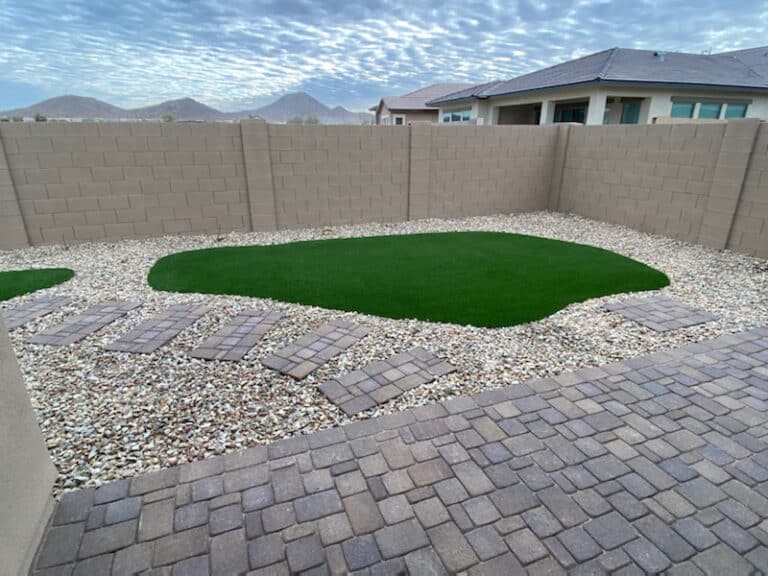Professionally installed pavers can enhance the beauty and functionality of any outdoor space. Whether you’re looking to create a stunning patio, walkway or driveway, pavers are an excellent choice for your home improvement project. However, installing pavers is not as easy as it may seem, which is why hiring a contractor is highly recommended. In this blog post, we will discuss the benefits of using a contractor for your paver installation, as well as other important factors to consider when choosing pavers in Arizona.
Introduction to Paver Installation and the Benefits of Hiring a Contractor
Pavers are made from concrete or natural stone and come in various shapes, sizes, and colors. They are designed to withstand harsh weather conditions and provide a durable surface that lasts for years. While pavers are relatively simple to install, there are many aspects to consider such as base preparation, sand setting, and jointing. A professional contractor has the knowledge and experience necessary to ensure that your paver installation is done correctly and efficiently.
The Differences Between Pavers, Concrete, and Stamped Concrete
One common question people have when considering pavers versus concrete is what the differences are between them. While both materials offer a durable surface, they each have their unique characteristics. Pavers are individual units that are laid on top of a compacted aggregate base, while concrete is poured into place and forms a solid slab. Stamped concrete is another option that involves imprinting patterns onto wet concrete to resemble brick, stone, or other textures. Ultimately, the decision comes down to personal preference and the specific needs of your project.
How Long Do Professionally Installed Pavers Last
Another benefit of professionally installed pavers is their longevity. With proper maintenance, pavers can last up to 25-30 years or more. This makes them a cost-effective solution compared to other types of paving materials that require frequent replacement due to wear and tear. Additionally, because pavers are modular, if one unit becomes damaged, it can be easily replaced without having to replace the entire surface.
Choosing the Best Type of Pavers for Arizona Weather Conditions
Arizona’s climate presents unique challenges when it comes to selecting the best type of pavers for your project. Factors like heat resistance, water absorption, and freeze/thaw cycles must be taken into consideration. For example, certain types of pavers may crack or become discolored over time if they are not suitable for our desert environment. A reputable contractor will be able to recommend the most appropriate paver material based on your location, usage requirements, and budget.
Common Questions About Pavers in Arizona: Fading, Sinking, and More
Finally, here are some answers to commonly asked questions about pavers in Arizona:
1. Will my pavers fade? – Yes, exposure to sunlight can cause pavers to lose their color intensity over time. However, some manufacturers produce pavers with UV protection to minimize fading.
2. What causes sinking pavers? – Settling or sinking pavers can occur due to poor soil compaction, excessive weight on the surface, or improper installation techniques.
3. Can I use salt to melt ice on my pavers? – Using salt or other deicing agents can harm your pavers by causing them to rust or corrode. Instead, use calcium chloride or magnesium chloride, which are safer alternatives.
In conclusion, investing in professionally installed pavers can add value and curb appeal to your property. By working with a skilled contractor, you can rest assured knowing that your paver installation will be completed properly and stand the test of time.





